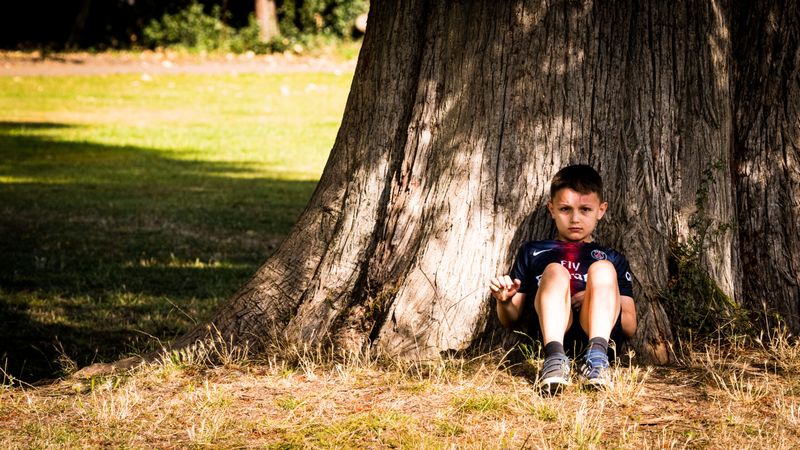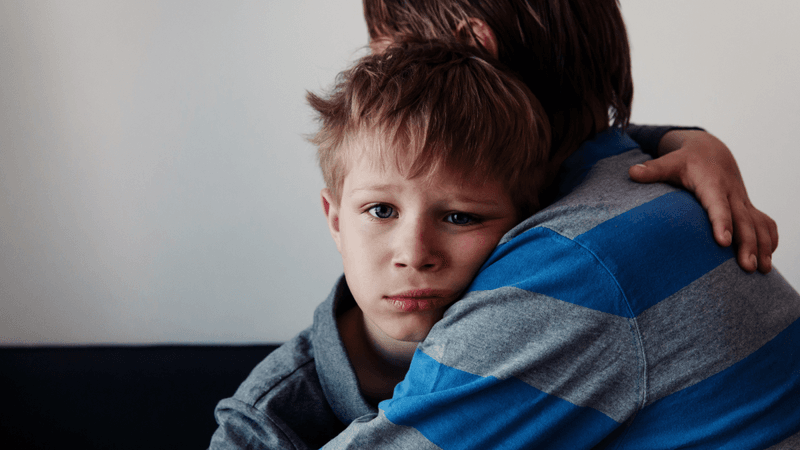Strict parenting can have unintended consequences that may affect a child’s development and well-being. While discipline and boundaries are important, excessive strictness can lead to various challenges for both the parent and the child. Here, we explore twelve potential downsides of being overly strict with your kids.
1. Loss of Trust

Children who grow up with strict parents might struggle with trusting their guardians. The constant enforcement of rules can make them feel like they are being watched rather than nurtured. This atmosphere of suspicion can lead to a breakdown in the parent-child relationship.
As kids grow, they seek independence and understanding. A rigid environment often stifles these desires, leading them to hide their true feelings. They fear judgment and punishment, pushing them further away.
Building trust requires open communication, but strictness often silences voices, making honesty a rare commodity between parent and child.
2. Fear Over Respect

In the realm of strict parenting, fear often masquerades as respect. Children may follow the rules not out of understanding but out of fear of repercussions. This fear-based compliance lacks the genuine respect that fosters healthy relationships.
A child who fears punishment may perform well in the short term but struggles with internalizing values. Fear inhibits open communication, as children feel they cannot express themselves freely.
Over time, this dynamic can damage their self-esteem, as they become more concerned with avoiding punishment than understanding right from wrong.
3. Low Self-Esteem

Strict parenting can inadvertently chip away at a child’s self-esteem. Constant criticism and high expectations can make them feel inadequate. They start believing they are only valued for their achievements, not for who they are.
This can result in a lack of confidence that affects their social interactions and academic performance. With every mistake magnified, children may withdraw, fearing further disappointment.
Encouragement and unconditional love are crucial for self-esteem, yet a strict environment may prioritize discipline over praise, leaving children feeling undervalued and unsupported.
4. Rebellion

Ironically, strict parenting can fuel rebellion. As children grow, they crave autonomy and decision-making power. Excessive control can drive them to act out against parental rules, seeking freedom through rebellion.
This defiance is often a quest for self-identity and independence, as strict environments can feel stifling. By resisting restrictions, they attempt to reclaim control over their lives.
Rebellion isn’t merely about disobedience; it’s a reaction to feeling trapped. The tighter the grip, the more likely they are to push back, leading to strained family relations.
5. Lack of Problem-Solving Skills

Children raised in strict households may struggle with developing strong problem-solving skills. The constant imposition of rules and solutions leaves little room for them to think independently.
When every decision is made for them, children miss out on learning through trial and error. They lack the experience of navigating challenges, which is vital for cognitive growth.
Encouraging problem-solving fosters creativity and resilience, yet overly strict environments may stifle these skills. Children become reliant on parents for answers, hindering their ability to tackle life’s challenges confidently.
6. Anxiety

Strict parenting can contribute to heightened anxiety in children. The pressure to always meet expectations can create a constant state of stress. They might worry about making mistakes or facing harsh judgment.
This anxiety can manifest in various ways, including physical symptoms like headaches or stomachaches. Children may become overly cautious, fearing the consequences of failure.
A nurturing environment reduces anxiety, but strictness amplifies it, resulting in a tense atmosphere. The lack of emotional safety can hinder a child’s ability to relax and enjoy their childhood fully.
7. Limited Social Skills

Children with overly strict parents may find it difficult to develop healthy social skills. The lack of freedom to interact with peers can hinder their ability to form friendships and communicate effectively.
Social interactions are crucial for developing empathy and understanding diverse perspectives. In strict households, children may not have the opportunities to engage with peers naturally.
This can result in feelings of isolation and difficulty in adapting to social situations. A balanced parenting approach encourages social engagement, yet strictness often limits these vital experiences.
8. Dependence on Authority

Strict parenting can lead to a heavy reliance on authority figures. When children are used to being told what to do, they may struggle to make decisions independently.
This dependence on authority can hinder their ability to trust their judgment. They may seek approval before making even minor choices, fearing repercussions.
For personal growth, developing autonomy is essential, but a strict environment might suppress this. Encouraging independent thought can foster confidence, yet stringent rules can lead to an over-reliance on external guidance.
9. Perfectionism

The high expectations associated with strict parenting can lead to perfectionism. Children may feel they must excel in all areas to gain approval, causing undue stress.
This pursuit of perfection can stifle creativity and lead to burnout, as children fear making mistakes. They may become overly critical of themselves, feeling their self-worth is tied to achievements.
Encouraging effort rather than perfection is vital for well-rounded development, but strict environments often reward only flawless outcomes, leading to a relentless pursuit of unattainable standards.
10. Lack of Creativity

A strict upbringing can suppress a child’s natural creativity. The focus on rules and structure may leave little room for imagination. When children are encouraged only to follow instructions, their creative potential might remain untapped.
Creativity flourishes in flexible environments that allow exploration and experimentation. Strict parenting often prioritizes conformity over innovation, stifling a child’s ability to think outside the box.
By valuing creative expression, parents can nurture a child’s ability to innovate. However, the rigid expectations of strict environments can diminish these opportunities significantly.
11. Emotional Withdrawal

Strict parenting can lead to emotional withdrawal. Children may feel stifled in expressing their true emotions, fearing judgment or punishment. This can result in a reluctance to share feelings, leading to emotional distance.
Emotional connection is vital for healthy relationships, but strictness can create barriers. Children may feel their emotions are invalid, leading to a sense of isolation.
A supportive environment encourages emotional expression, yet strict parenting often prioritizes discipline, leaving little room for vulnerability, creating a gap in emotional understanding.
12. Lack of Resilience

Children raised in strict households may struggle with resilience. The fear of failure or making mistakes can prevent them from taking risks and learning from setbacks.
Resilience is built through experiencing challenges and overcoming them, but a strict environment may discourage this growth. Children might become risk-averse, fearing disapproval.
Encouraging resilience involves supporting children through failures, yet strictness often focuses on maintaining order. This can lead to a lack of adaptability, as children may not develop the coping mechanisms needed to handle life’s ups and downs.

